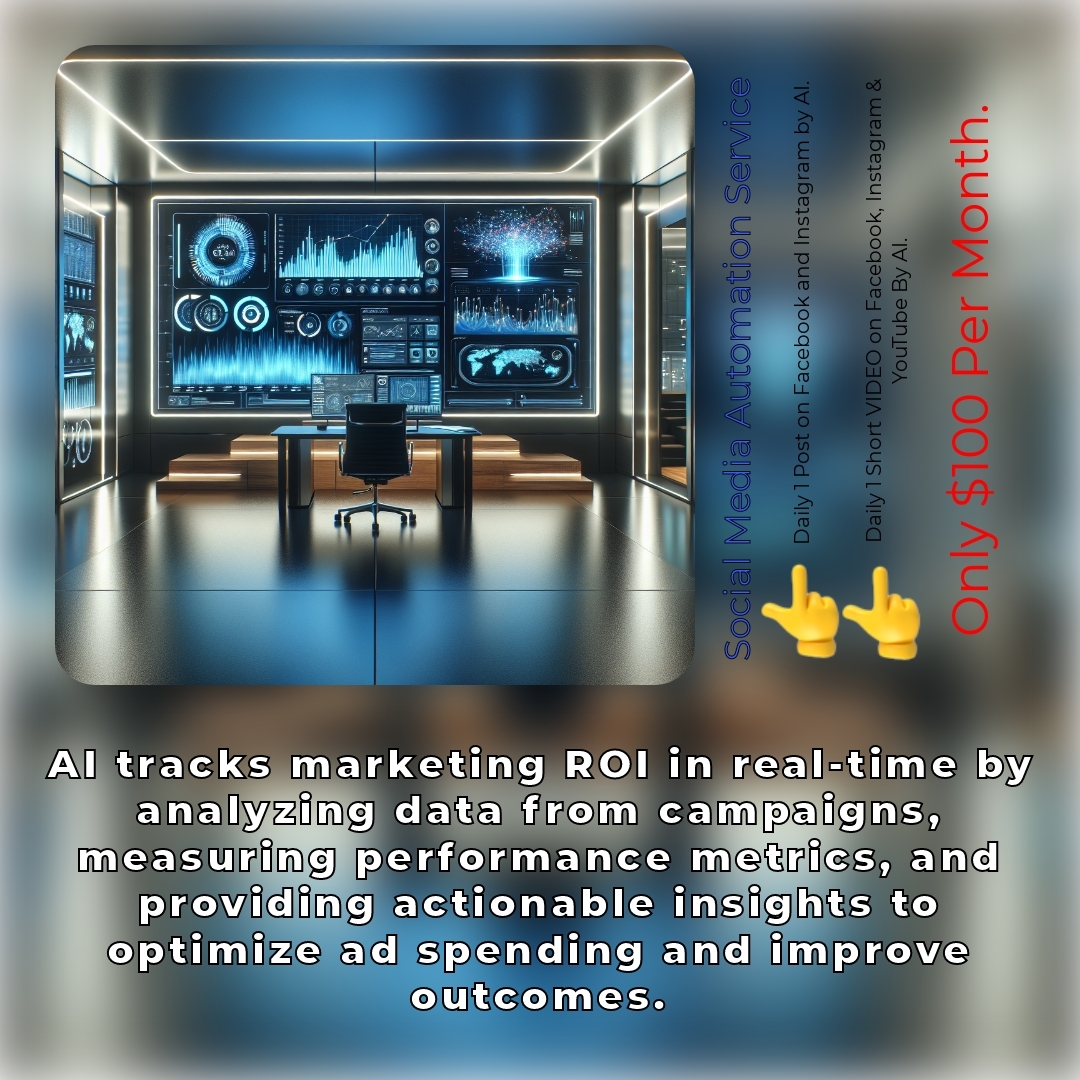Marketing ROI is critical for any business striving for growth and sustainability. Incorporating AI in tracking Marketing ROI not only transforms traditional advertising metrics but also enhances performance analysis through real-time data analytics. This approach enables marketers to make informed decisions swiftly, ensuring optimal strategies align with current market dynamics.
“AI reveals real-time ROI, empowering smarter marketing decisions today.”

Understanding AI Marketing ROI
AI Marketing ROI refers to the application of artificial intelligence technologies and tools to measure and analyze the return on investment from marketing efforts. It reshapes how businesses gauge marketing effectiveness by looking beyond traditional metrics. In today’s competitive landscape, knowing exactly how your marketing activities impact your bottom line is vital for success.
Measuring marketing ROI is crucial for any business aiming to improve its strategies and achieve growth. Traditional methods can be time-consuming and may not always yield accurate insights. However, with AI at the helm, marketers can access real-time data and analytics, allowing them to make quicker and more informed decisions.
Role of Artificial Intelligence in Marketing
AI tools come in various forms, including machine learning algorithms, natural language processing, and predictive analytics. These technologies help marketers identify trends, segment audiences, and forecast outcomes based on past performance.
By integrating AI into their marketing strategy, businesses can streamline insights and empower decision-making processes. This leads to more tailored campaigns that resonate with consumers, ultimately boosting engagement and ROI.
Marketing ROI Measurement
To measure marketing ROI effectively, certain standard metrics come into play, such as customer acquisition cost (CAC), customer lifetime value (CLV), and conversion rates. AI-driven methodologies enhance these measurements by providing deeper insights and comparisons that traditional tracking methods often miss.
The shift from traditional to AI-driven ROI tracking means that marketers can analyze large volumes of data quickly. Consequently, they can adjust strategies based on real-time insights instead of waiting for months of data accumulation.
Real-Time Marketing Analytics: The Power of Immediate Insights
Real-time marketing analytics involves collecting and analyzing data as it occurs, providing businesses with immediate insights into campaign performance and consumer behavior. This information is invaluable for adapting strategies on-the-fly to maximize effectiveness.
Key features of real-time analytics include live dashboards, instant alerts, and predictive modeling, all of which keep marketers informed and responsive. This immediate access to data ensures that companies can make quick decisions that align with their audience’s needs.
Benefits of Real-Time Marketing Analytics Using AI
- Immediate identification of successful strategies to capitalize on.
- Faster responses to market changes or shifts in consumer behavior.
- Enhanced understanding of the consumer journey via data-driven marketing tactics.
Case Study: Implementing AI in Real-Time Marketing
A notable example is a retail company that integrated AI for real-time analytics. By tracking customer interactions across multiple platforms, they could identify which promotions drove the most sales. As a result, they improved their marketing ROI significantly within just months.
Measuring Marketing ROI with Artificial Intelligence
AI enhances the measurement of marketing ROI by providing accurate tracking and insights. Various tools and technologies, such as ROI tracking software, can analyze performance metrics in real-time, enabling businesses to stay ahead of the competition.
Some key performance metrics to evaluate include engagement rates, return on ad spend (ROAS), and overall brand awareness. These metrics help in assessing how well campaigns resonate with target audiences.
Key Challenges in Marketing ROI Measurement
Despite advancements, marketers still face challenges when measuring ROI. Common issues include data fragmentation, lack of cohesive tracking systems, and attributing conversions accurately. Thankfully, AI helps overcome these hurdles by providing precise analytics and centralized data interpretation.
Data-Driven Marketing: A Path to Improvement
Utilizing data effectively is essential for refining marketing strategies. Businesses like tech firms have successfully implemented data-driven initiatives, leveraging AI analytics to improve targeting and engagement significantly.
Conclusion
In summary, AI plays a critical role in tracking marketing ROI in real-time, allowing businesses to leverage immediate insights for better decision-making. By adopting AI Marketing ROI practices, companies can improve their strategies and remain agile in a fast-paced market. Embracing real-time marketing analytics is not just beneficial; it’s essential for achieving measurable success and advancements in overall marketing effectiveness.
If you’re looking to elevate your marketing strategies, consider exploring more AI tools that can enhance tracking capabilities and provide you with a clearer view of your ROI. Start integrating real-time marketing analytics into your efforts today!
Frequently Asked Questions
What is AI Marketing ROI?
AI Marketing ROI is about using artificial intelligence tools to measure and analyze how effective a business’s marketing efforts are. It goes beyond traditional metrics to give a better understanding of how marketing impacts profits.
How does AI improve marketing ROI measurement?
AI allows marketers to access real-time data quickly. This helps in making more informed decisions and adjusting strategies immediately, rather than waiting for long data accumulation periods.
What tools are involved in AI-driven marketing ROI?
Common AI tools in marketing ROI include:
- Machine learning algorithms
- Natural language processing
- Predictive analytics
What are some key metrics for measuring marketing ROI?
Some important metrics to consider are:
- Customer Acquisition Cost (CAC)
- Customer Lifetime Value (CLV)
- Return on Ad Spend (ROAS)
- Engagement rates
What are the benefits of real-time marketing analytics?
Using real-time marketing analytics can lead to:
- Immediate recognition of effective strategies
- Faster responses to market changes
- Better understanding of consumer behavior
What challenges are there in measuring marketing ROI?
Marketers may face issues such as:
- Data fragmentation
- Inadequate tracking systems
- Difficulties in attributing conversions
AI helps by providing accurate analytics and a centralized view of data.
How can businesses start using AI for marketing ROI?
Businesses can begin by exploring AI tools that enhance tracking and implementing real-time analytics in their marketing strategies. This can lead to better performance and understanding of their ROI.









